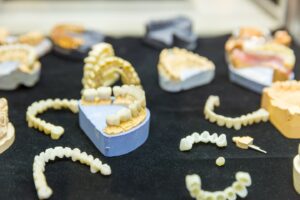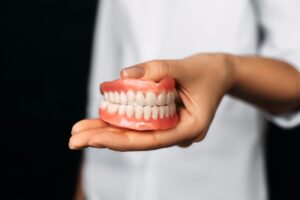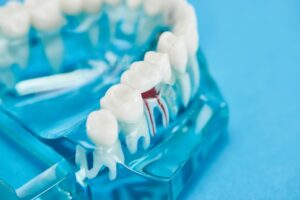Maintaining good oral hygiene is essential for overall dental health. This includes regular dental cleanings and deep cleanings of teeth. In this article, we will explore the routine cleaning process and deep cleaning procedures in detail. We will discuss the importance of these cleaning methods and the benefits they provide for oral health.
A routine cleaning process, also known as regular dental cleaning or prophylaxis, is a preventive measure that individuals should undergo at least twice a year. This process involves various steps to ensure the removal of plaque and tartar build-up on teeth. It starts with an oral examination by a dentist to check for any signs of dental problems. The dentist then removes the plaque and tartar using special dental instruments.
Brushing and flossing are emphasized during the cleaning to ensure all surfaces are thoroughly cleaned. Polishing of the teeth is done to remove any stains or discoloration. Finally, a fluoride treatment is applied to strengthen the teeth and prevent cavities. The dentist evaluates the overall oral health and provides recommendations for proper dental care.
Routine Cleaning Process
The routine cleaning process is a crucial aspect of maintaining good oral health. It helps to prevent dental issues such as cavities, gum disease, and bad breath. Regular cleaning also allows dentists to detect any potential problems early on. By following the routine cleaning process, individuals can effectively remove plaque and tartar from their teeth, ensuring a healthy and beautiful smile.
- Oral examination by a dentist: During a routine dental cleaning, an oral examination is conducted by a dentist. This examination allows the dentist to assess the overall oral health of the patient, identify any dental issues, and develop a personalized treatment plan.
- Removal of plaque and tartar: Plaque and tartar build-up on teeth can lead to tooth decay and gum disease. The dentist or dental hygienist uses specialized tools to remove these deposits, ensuring a clean and healthy mouth.
- Brushing and flossing: Brushing and flossing are essential components of the routine cleaning process. They help to remove food particles and plaque from the teeth and gums. Regular brushing and flossing at home, in addition to professional cleanings, are vital for maintaining good oral hygiene.
- Polishing of teeth: After the removal of plaque and tartar, the dentist or dental hygienist polishes the teeth. This procedure helps to remove surface stains and gives the teeth a smooth and shiny appearance.
- Fluoride treatment: Fluoride is a mineral that strengthens the teeth and helps to prevent cavities. After the cleaning process, a fluoride treatment is applied to the teeth to protect against tooth decay.
- Evaluation of oral health: At the end of the routine cleaning process, the dentist evaluates the patient’s overall oral health. They may provide recommendations for additional treatments or practices to maintain good oral hygiene.

Deep Cleaning of Teeth
Despite regular dental cleanings, some individuals may require a more intensive cleaning procedure known as deep cleaning or scaling and root planing. This deep cleaning is usually recommended for individuals with gum disease or those who haven’t had regular cleanings for a long time. Deep cleaning involves cleaning below the gumline to remove plaque and tartar that may have accumulated in the pockets between the gums and teeth.
- Reasons for deep cleaning: Deep cleaning is necessary when there is a significant buildup of plaque and tartar below the gumline. This build-up can lead to gum disease, tooth decay, and other oral health issues if left untreated.
- The process of deep cleaning: Deep cleaning involves two main procedures: scaling and root planing. Scaling involves the removal of plaque and tartar from the surface of the teeth and the gumline. Root planing smooths out the root surfaces of the teeth to prevent bacteria from reattaching and causing further damage.
- Potential discomfort during deep cleaning: Deep cleaning may cause some discomfort, especially if the gums are sensitive or inflamed. However, local anesthesia can be administered to minimize any pain or discomfort during the procedure.
- Aftercare and recovery: After deep cleaning, it is important to follow proper aftercare instructions provided by the dentist. This may include using a special mouth rinse, avoiding certain foods or habits, and maintaining good oral hygiene practices.
Benefits of Routine and Deep Cleaning
Routine Cleaning:
Regular dental cleanings provide numerous benefits for oral health and overall well-being, including the prevention of cavities by removing plaque and tartar build-up, removal of surface stains through polishing for a brighter smile, early detection of potential dental problems to avoid serious complications and costly treatments, and maintenance of fresh breath by eliminating food particles and bacteria that cause bad breath.
Deep Cleaning:
Deep cleaning offers additional benefits for individuals with gum disease or significant plaque build-up, including the reduction of gum disease symptoms by removing bacteria and debris below the gumline, prevention of tooth loss by maintaining the health of teeth and gums, promotion of gum tissue regeneration by stimulating the growth of healthy tissue, and overall improvement in oral health when combined with proper oral hygiene practices, reducing the risk of future dental problems.
Conclusion
Maintaining good oral hygiene through routine cleaning and deep cleaning of teeth is essential for overall dental health. Regular dental cleanings help to prevent dental issues, detect problems early on, and maintain fresh breath. Deep cleaning is recommended for individuals with gum disease or significant plaque build-up below the gumline.
By following proper dental care practices and visiting the dentist regularly, individuals can keep their smiles healthy and prevent dental problems in the long run. For those in the Miami, Florida area, I highly recommend Ultra Smile Dental Spa. Their team of professionals is dedicated to providing top-notch care and ensuring the best dental health outcomes for their patients.







